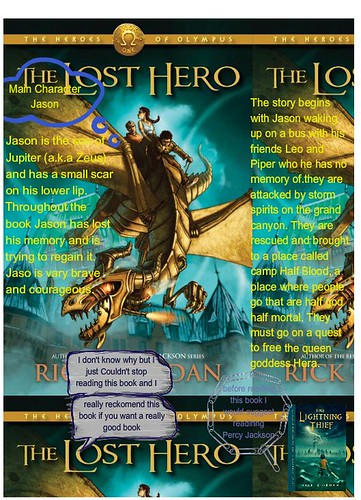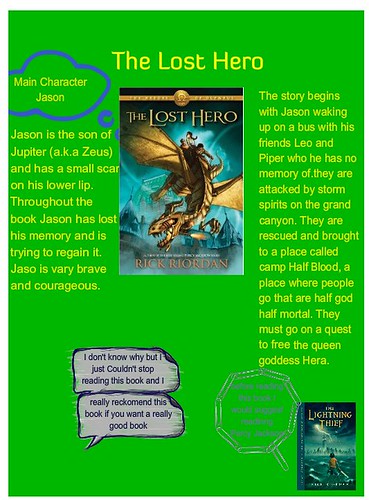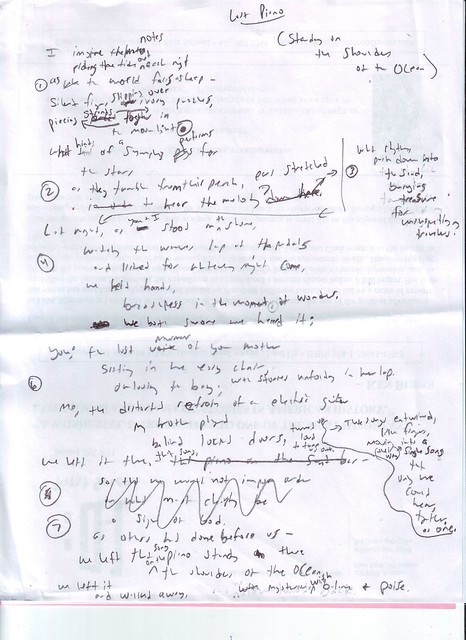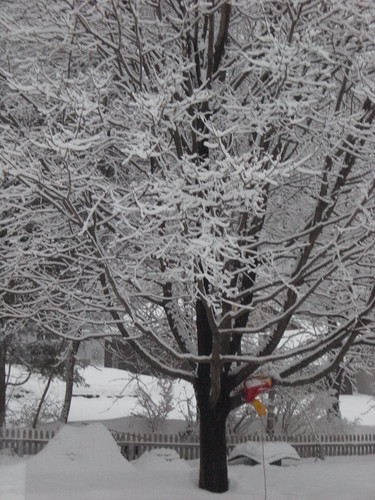
When I was in eighth grade, I think it was, I attended a summer arts camp and remember clearly a performance of musicians from China performing traditional Chinese music. I remember it because at the time, I found it so incredibly boring that I squirmed in my seat and thought time had slowed to a crawl. This was music I had never heard before and its strange timbre, rhythm and sounds jarred me. Why were they making us sit though this, I wondered?
Now, today, I remember it because those sounds of those musicians and those odd-looking instruments still live in my head. That first exposure to music from Asia made its mark, even in my own reluctant head, and I can now appreciate as an adult what I didn’t appreciate as a teenager: the talent of the musicians and the breadth of music in this world (beyond Led Zeppelin and Charlie Parker).
I was thinking of this yesterday as we brought all of our sixth and fifth grade students to a live performance of Three Cups of Tea yesterday. It is a one-man show from the American Place Theater/Literature to Life series, with actor Curtis Neilson, and the audience imagination plays a role here, too (as Neilson told us in a discussion after the performance, about the partnership of actor and audience). The audience must imagine and believe. Luckily, all of my students read the young adult version of Three Cups of Tea last year and some even got to meet Greg Mortenson at a local college after a fundraising activity we did at our school. (The fifth graders will read it this year). My students last year also did a Glogster project around the book, its themes of making a difference in the world, and the character traits of Mortenson.
Discussing the performance with my students after the show, they mostly gave it a thumbs-down (“boring” and “I got sleepy” and “why didn’t they have more props” were common remarks), but I am convinced it because they — us, the audience — had to work, as the stage consisted of just the actor and a few simple props, and the words from the book. Nothing else. We had to imagine the invisible actors, and the scenery, and come into the story. The opening scene of Greg getting lost in on the mountains, which starts the whole story, involved the actor in the dark theater, walking through the audience as he laments the death of his sister and his inability to finish his climb to the top of K2.
(And just to be clear — I thought the actor did a fantastic job, using his voice and actions and the words of the text to draw us into the interesting elements of the story and the emotional part of the story, too.)
I get the feeling that entertainment for too many of my students means “feed me what I need to know, and make it quick.” Or maybe I am thinking this because I am reading the novel, Feed by M.T. Anderson, and that constant flow of data and entertainment is on my mind. The connected world of mobile devices, gaming and wired computers often means instant gratification (and I know I sound like a digital naysayer here, and you should know, I am not). They have that expectation now, I think. To sit for almost an hour in a dark theater and be transported by one man on the stage …. they are not there yet and it requires a skill of patience few of them seem to have. A show of hands by my class afterward indicates that very few have ever even seen a live stage production of any kind.
So, why force them?
We sort of knew this might be the case. I go back to my own experience, with the Chinese music. Our hope as teachers is that this performance, and other experiences that bring them outside their comfortable circle, will enrich their lives, in ways that might not unfold for years down the line. We want them to see the possibilities of art, and drama, and music. Yes, I tell them: one actor on stage can transform an audience, if the story is powerful enough.
We need to expose our students to as much of the world of art as we can, and plant the seeds for creativity. It might not bloom for many years. But, it may bloom and that is enough reason in itself.
Peace (on the stage),
Kevin




